Evaluating Country Programmes - OECD Online Bookshop
Evaluating Country Programmes - OECD Online Bookshop
Evaluating Country Programmes - OECD Online Bookshop
You also want an ePaper? Increase the reach of your titles
YUMPU automatically turns print PDFs into web optimized ePapers that Google loves.
Impact<br />
<strong>OECD</strong> 1999<br />
<strong>Country</strong> Programme Evaluation: A State of the Art Review<br />
Box 2.3. DAC definitions<br />
of criteria for evaluating development assistance (cont.)<br />
A term indicating whether the project has had an effect on its surroundings in<br />
terms of technical, economic and socio-cultural, institutional and environmental<br />
factors. Evaluation should consider 1) direct effects, the immediate costs and benefit<br />
of both the contribution to and the results of a project without taking into consideration<br />
their effects on the economy; 2) indirect effects, the cost and benefit which are<br />
unleashed by the contributions to a project and by its results; 3) multiplier effects, a<br />
special indirect effect which deals with the increase in the use of the economy’s<br />
capacity, by the aid programmes generating a rise in demand. In evaluating the<br />
impact of a programme or project, it is useful to consider the following questions:<br />
1. What has happened as a result of the programme or project?<br />
2. What real difference has the activity made to the beneficiaries?<br />
3. How many have been affected?<br />
Sustainability<br />
The extent to which the objectives of an aid activity will continue after the<br />
project assistance is over; the extent to which the groups affected by the aid want<br />
to and can take charge of themselves to continue accomplishing its objectives. Sustainability<br />
is concerned with measuring whether an activity or an impact is likely to<br />
continue after donor funding has been withdrawn. Projects need to be environmentally<br />
as well as financially sustainable. In evaluating the impact of a programme or<br />
project, it is useful to consider the following questions:<br />
1. To what extent did the programme or project continue after donor funding<br />
reached an end?<br />
2. What were the major factors which influenced the achievement or nonachievement<br />
of sustainability of the programme or project?<br />
[DAC Principles for the evaluation of development assistance (1991); Glossary of<br />
terms used in evaluation in Methods and procedures in aid evaluation (1986).]<br />
parts”. A CPE generally starts by deconstructing the country programme into its<br />
component elements (a portfolio of projects, programme aid and technical assistance).<br />
The proportion of the country programme which is evaluated in depth and<br />
the approach to integrating this into a judgement about overall country programme<br />
73





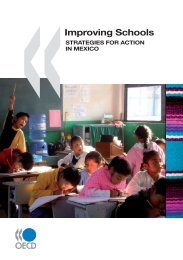
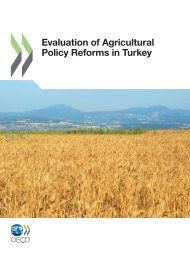
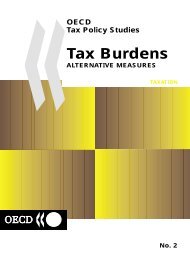
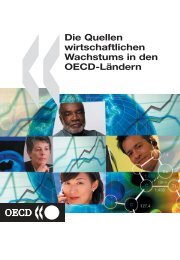
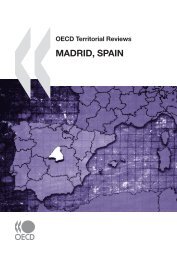


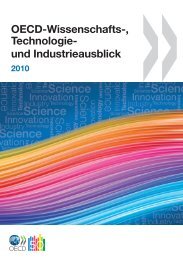
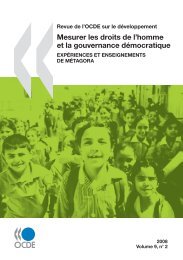
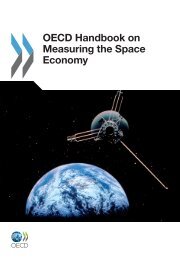
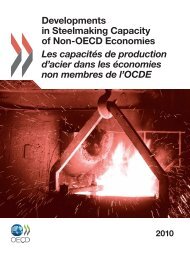
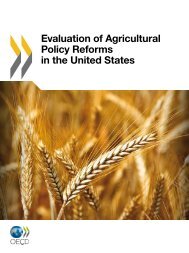
![CQE=U]^\]Z: KAZAKHSTAN - OECD Online Bookshop](https://img.yumpu.com/3915768/1/190x253/cqeuz-kazakhstan-oecd-online-bookshop.jpg?quality=85)